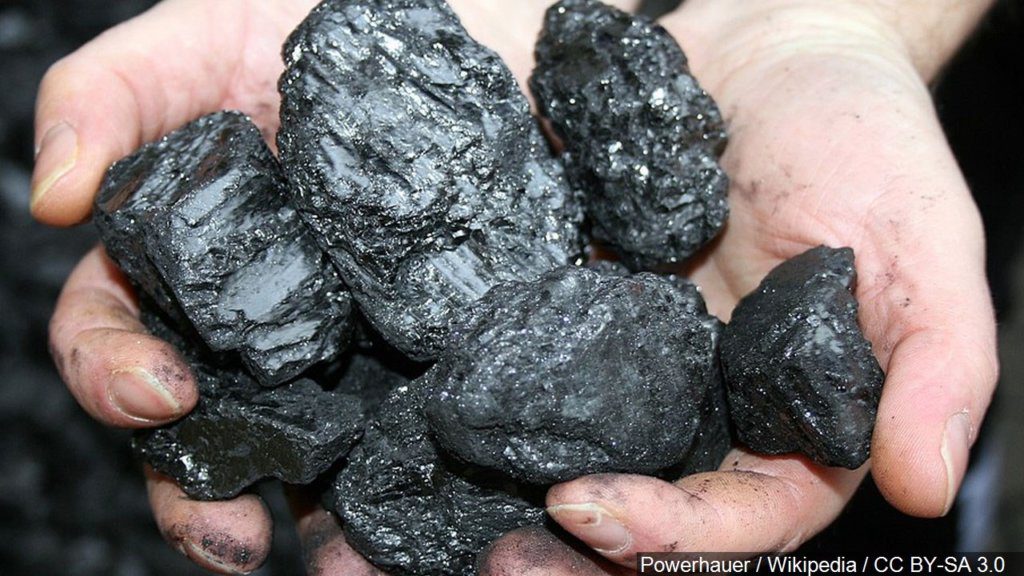Source: WCHS Eyewitness News
MATEWAN, W.Va. (WCHS) — At the start of its statehood coming out of the Civil War, West Virginia experienced a coal boom like no other. With that, came a high demand for men willing to go underground.
Companies recruited across the country and even into Europe but specifically targeted African Americans in the Jim Crow South. By 1909, according to the National Park Service, African American miners made up more than a quarter of West Virginia’s mining workforce.
Their often unrecognized contributions and sacrifices played a key role in the fight to unionize while also fighting for their own civil rights.
In Mingo County, the historic coal town of Matewan has been a centerpiece of the state’s labor history, and on the side of the town’s Mine Wars Museum is a banner of a black and white photo of black miners, European immigrant miners and white miners standing together before a shift.
Michael Ray Johnson, a third generation coal miner from Matewan, says it is one of his favorite pictures.
“My dad was a coal miner. He was originally from Alabama. He came here after the service to mine coal. It was a lot better for him here. In the ’40s and ’50s down there, he said the discrimination was pretty bad, so after he came back from the war, that’s when he decided if he couldn’t find work, he would venture out and go somewhere else, and so he ended up here,” Johnson said.
His family’s story of migrating to West Virginia from the south is the story of thousands of African American families spanning back to the late 1800s.
In those days, Southern West Virginia’s population quadrupled almost entirely because of the coal industry as people poured in to mine coal in places like McDowell County, Mercer County, Logan County and Mingo. Coal companies promised of a better life, but conditions were far from ideal.
At the New River Gorge National Park and Preserve, their displays in abandoned coal camps like Nuttalburg in Fayette County tell the story of segregated housing, segregated schools and unequal working conditions. This meant longer hours for black miners on the most grueling, dangerous and deadly jobs. This was a strategy by the coal companies to keep the miners from unifying.
Johnson says by segregating the miners in Mingo County and treating each group differently, it would cause chaos among them.
“They helped keep them separated and keep them mad at each other. Instead of trying to keep the peace, they wanted to stoke it,” Johnson said.
However, the influx of African Americans also created new opportunities for some even outside of the coal industry. The great-great aunt of Matewan native Francine Jones started the state’s very first minority-owned dry cleaning business in Matewan with her husband, John Brown. Both Mary Brown and her husband came to Mingo County from Virginia. With her skills as a seamstress and his as a fluent speaker of Italian, they were able to open the Matewan Dry Cleaners in 1911.
“They had so many friends in not just Matewan but Mingo County, and they were able to employ people, and when some people came from Virginia, they didn’t have a place to stay, but they always made sure they had a place to stay,” Jones said.
Jones would hear stories growing up about her great-great aunt and how she created an environment where all were welcome including the miners, their families and of course their laundry, and that business model served them for 52 years as the business lived through the town’s most turbulent time.
In the years leading up to the 1920 Matewan Massacre and the Coal Wars across Southern West Virginia, this was a turning point in the fight to unionize as coal companies began evicting miners who started to strike as their unions grew stronger. Families in Matewan began living in what they called Tent City.
“When the coal companies got the thugs to throw the miners out, they didn’t have anywhere to live because of the coal company houses they had to live in these army tents,” Johnson said.
In Tent City, segregation was impossible as they had no choice but to all live together.
“Families were living in an actual tent and you know, I thought about those children freezing. you had black and white families live together but they also worked together. They made sure the kids were fed, and Tent City just means so much to me.”
In May of 1920, black miners, white miners and immigrant miners from Europe banded together to stand up to the coal company as it ended in a deadly exchange of gunfire known as the Matewan Massacre killing seven detectives from the coal company, the town’s mayor and two miners.
“I think they thought, ‘If they do that to you, then they’ll do the same thing to me.’ So if we don’t stand up and fight as one, it will eventually get to all of us and they can do to us whatever they want to do,” Johnson said.
Despite this display of unity in Matewan and in the battles following, it would be another long uphill battle for integration throughout the state. It would be another 36 years before Mingo County became one of the last counties in West Virginia to integrate their schools following a lawsuit from the NAACP.
When Johnson and Jones came up through school in the ’60s, ’70s and’ 80s, they both attended integrated schools.
“We all went to school together. We all treated each other like we were cousins to this day. To this day, my classmates who are still living, we have that bond,” Jones said.
When Johnson finished school and went into the mines, he also joined the United Mine Workers of America where he felt a sense of unity and bond.
“Because you have to when you’re working in a job that’s dangerous like that. I can’t say I don’t like you and both of us have to go up there and move something, and so you have to put that out of your mind,” he said.
The United Mine Workers of America played a key role in unifying diverse groups of miners as they implemented anti-racist policies early. Charles “Hawkeye” Dixon is the financial secretary for the UMWA 1440 chapter in Matewan.
“That’s not to say there weren’t individuals that were racist, but our union didn’t tolerate it,” Dixon said. “Our members were African American and we loved them and protected them. Couldn’t belong to Ku Klux Klan or anything like that. Wouldn’t condone it. We don’t to this day.”
Following the Great Depression and beyond, African American families started to move away from West Virginia. They were more likely to be laid off from their jobs in the mines because their jobs typically involved more manual labor. When machines began to take their spots, they were the first to go.
“We don’t have too many black families left anymore,” Jones said.
But Jones and Johnson stuck around to fight for a better Matewan as Jones has a vision to see the town thrive again.
“This is home. This is home,” she said.
Today, when you walk into the local union hall in Matewan, you will find retired miners of all different backgrounds and races sitting around, laughing, talking and reminiscing, and when you ask about the secret to their ability to come together, some will say it was the miners before them. Some directly point to the their fight for labor justice, and others, like Dixon, simply point to the guy next to them and say, “If there’s any fighting that starts, don’t you forget who’s side I’m on. I’ll be here fighting with you. He just laughed, but I meant it, you know.”
Johnson looks at the painting on the wall of Tent City, a reminder of what the men and their families before them went through. The painting portrays black men, white men and their families all together.
“A lot of times adversity like this brings people together, I think. And that right there’s a neat picture,” he said.
Written by: ANNA SAUNDERS





